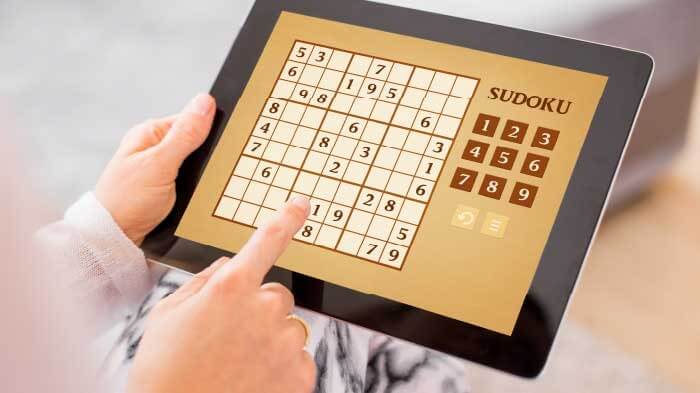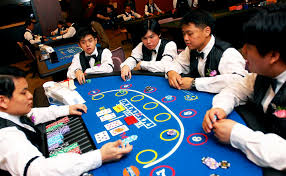
Puzzle games are not just entertaining; they also offer significant cognitive benefits. Engaging in these games regularly can help enhance various mental skills, including problem-solving, memory, and attention. Here’s a list of top puzzle games that are excellent for exercising your brain and boosting cognitive health.
1. Sudoku
Overview: Sudoku is a number-placement puzzle where players fill a 9×9 grid with digits so that each column, row, and 3×3 subgrid contains all digits from 1 to 9 without repetition.
Cognitive Benefits: Sudoku enhances logical reasoning, pattern recognition, and problem-solving skills. It requires players to think critically and systematically to complete the grid.
- Tip: Start with easier puzzles and progress to more challenging ones to continuously challenge your brain.
2. Crossword Puzzles
Overview: Crossword puzzles involve filling a grid with words based on given clues. Words intersect and fit together to complete the puzzle.
Cognitive Benefits: Crosswords improve vocabulary, memory, and cognitive agility. They require players to recall information and think critically to solve clues.
- Tip: Solve puzzles of varying difficulty to expand your vocabulary and keep your mind sharp.
3. Jigsaw Puzzles
Overview: Jigsaw puzzles require assembling pieces to form a complete image. The pieces must fit together based on shape and picture alignment.
Cognitive Benefits: Jigsaw puzzles enhance spatial reasoning, visual perception, and problem-solving skills. They help develop patience and attention to detail.
- Tip: Choose puzzles with different piece counts and complexities to continuously challenge your spatial reasoning abilities.
4. Logic Puzzles
Overview: Logic puzzles involve solving problems using deductive reasoning and logical analysis. Examples include riddles and logic grid puzzles.
Cognitive Benefits: Logic puzzles boost problem-solving skills and cognitive flexibility. They challenge players to think critically and solve problems using logic.
- Tip: Regularly engage with various logic puzzles to strengthen your deductive reasoning and problem-solving abilities.
5. Rubik’s Cube
Overview: The Rubik’s Cube is a 3D combination puzzle where players twist and turn a colorful cube to align all sides with a single color.
Cognitive Benefits: Solving the Rubik’s Cube develops spatial reasoning and problem-solving skills. It requires players to recognize patterns, devise strategies, and execute precise movements.
- Tip: Learn algorithms and practice solving methods to improve your speed and efficiency in solving the cube.
6. Nonogram (Picross)
Overview: Nonogram puzzles involve filling in cells on a grid based on numeric clues to reveal a hidden picture. The clues indicate how many consecutive cells in each row and column should be filled.
Cognitive Benefits: Nonograms enhance logical thinking and pattern recognition. They require players to use deductive reasoning to decode the clues and reveal the image.
- Tip: Start with smaller grids and gradually move to larger ones to improve your logical thinking and pattern recognition skills.
7. Kakuro
Overview: Kakuro is a number-placement puzzle where players fill a grid with digits so that the sum of numbers in each row and column matches given clues.
Cognitive Benefits: Kakuro enhances arithmetic skills, logical reasoning, and problem-solving abilities. It requires players to perform calculations and use logic to fill in the grid correctly.
- Tip: Practice Kakuro puzzles of varying difficulty to improve your arithmetic and problem-solving skills.
8. Brain Teasers
Overview: Brain teasers are short, challenging puzzles or riddles that require creative thinking and problem-solving skills to solve.
Cognitive Benefits: Brain teasers stimulate cognitive flexibility and enhance problem-solving abilities. They encourage players to think outside the box and find innovative solutions.
- Tip: Solve different types of brain teasers to keep your mind sharp and improve your creative problem-solving skills.
9. 2048
Overview: 2048 is a sliding tile puzzle game where players combine tiles with the same number to create higher numbers until they reach the 2048 tile.
Cognitive Benefits: 2048 improves strategic thinking, planning, and problem-solving skills. It requires players to make decisions about tile placement and anticipate future moves.
- Tip: Plan your moves carefully and focus on creating higher-value tiles to enhance your strategic thinking and problem-solving abilities.
10. Flow Free
Overview: Flow Free is a puzzle game where players connect matching colored dots on a grid without overlapping paths. The goal is to fill the entire grid with colored paths.
Cognitive Benefits: Flow Free enhances spatial reasoning, problem-solving skills, and cognitive flexibility. It requires players to visualize paths and strategize to complete the puzzle.
- Tip: Start with smaller grids and progress to larger ones to continuously challenge your spatial reasoning and problem-solving skills.
Conclusion
Engaging in puzzle games offers a fun and effective way to exercise your brain and enhance cognitive abilities. Games like Sudoku, crossword puzzles, and Rubik’s Cube provide mental stimulation and promote critical thinking, problem-solving, and spatial reasoning. By incorporating these top puzzle games into your routine, you can boost your cognitive health and enjoy a sharper, more agile mind.
Win big with 3k.top – your ultimate online casino adventure starts here!






